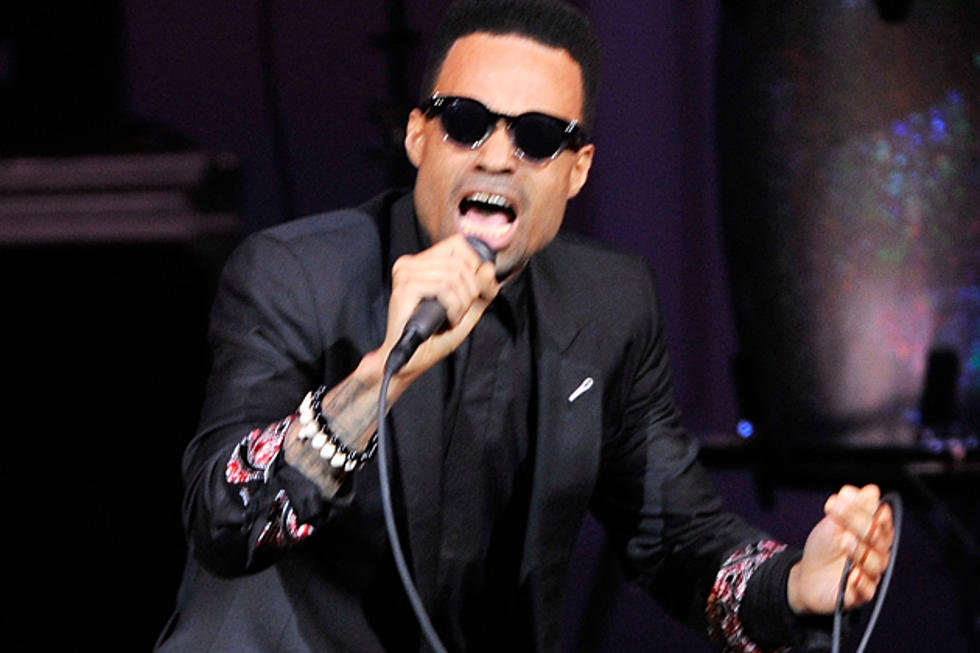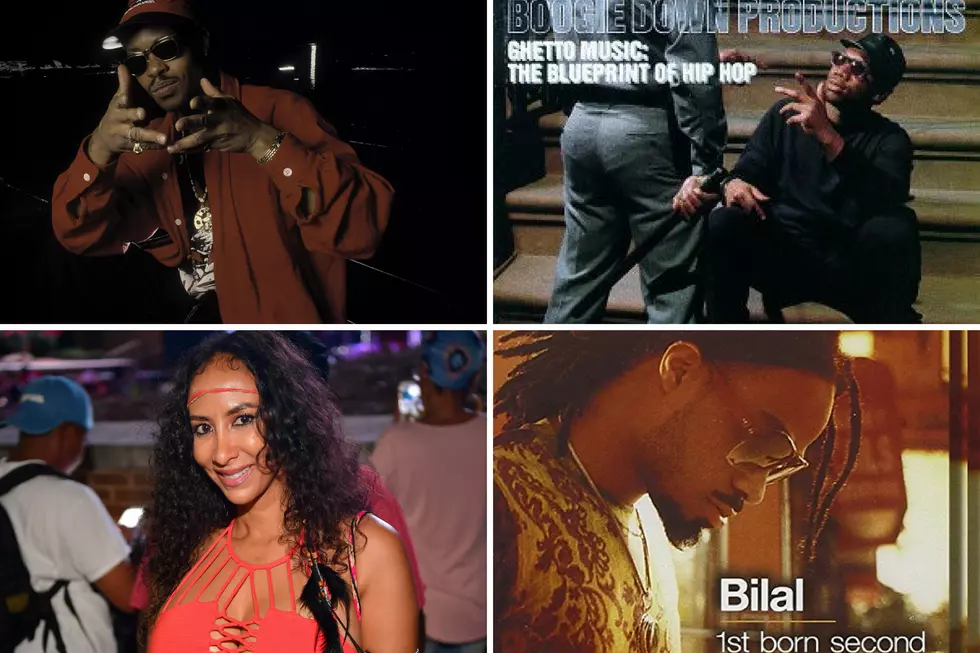
In House With Bilal: Philadelphia Singer Talks New LP ‘A Love Surreal’
In the past year or so, interest in alternative R&B has skyrocketed. Maybe Bilal was just ahead of his time. Because while critical acclaim has never been hard to come by for the Philadelphia-bred crooner, he's spent a bulk of his career -- now spanning more than a decade -- flying under the radar of the populace.
A few things may have contributed to that. The singer largely fell off the scene after his 2001 debut 1st Born Second -- which featured production from both Dr. Dre ("Fast Lane") and J. Dilla ("Reminisce") -- was met with nearly universal praise. Then there was drama with Interscope, who shelved his second LP, Love for Sale, when Bilal's vision didn't match that of the storied label. And of course there's his own musical ambitions, which have always seemed to be left of center.
Whatever the case, Bilal has and always will command a certain amount of respect in serious music circles. The guy has collaborated with everyone from Beyonce to Diddy to Erykah Badu to Robert Glasper, showing that despite his artistic proclivities, his repertoire is vast.
After an official return in 2010 with his second LP, Airtight's Revenge, Bilal is back again with a new collection of material -- A Love Surreal, which dropped last Tuesday (Feb. 26). Before it was released, Bilal stopped by for an exclusive chat.
What were your goals when you went into making this new record?
I wanted to kind of condense the sound, I was coming in from Airtight's Revenge and when it came time to mix, I just felt like there were too many tracks. So my whole take on this album was to simplify my ideas more. I didn't even intend on making a whole album, I was just going to make an EP, and by the time I was finished we had a whole album.
In terms of making it simpler, was there anything you did specifically?
I used less instruments. I really tried to work out the song in its original form. More so that it could stand up on its own, without a lot of other sounds, or it even being a track. If I could get the guitar and sing it to you right now, if it can hold up like that, then I don't have to add a bunch of background vocals or all the extra guitar parts or extra organs.
Was that a different process for you or something that you did early on in your career?
I've always put a lot of... had a lot of stuff in the music. I don't know where that comes from, I guess it comes from knowing a lot of music and whatever, or being young and just throwing the kitchen sink in there. So for this album I wanted to go for a simpler kind of lo-fi deal where I could really bring my voice out more.
The name of LP is inspired by John Coltrane's A Love Supreme. What type of influence does that album have on this record?
That's a big spiritual album for John and I could say the same for this album. As far as the lyrical content is concerned, a lot of the songs were retrospective about trying to find love again, love lost or trying to find a reason again, that passion and spark. I guess you could put that in A Love Supreme because that album was a change in John in a way. [He] started to go in a more spiritual direction. He started to take long solos and he started to go deeper.
You were out of the spotlight for a few years. What do you attribute that to? Was it personal, was it business? What made you disappear?
It was business. I really had to reassess things, I had to clear out energy. I went through the whole bootlegging issue at Interscope when I was working on a record, it never really came out, it ended up on the internet, bootlegging. I got a lot of love from the bootleg and ended up gigging off of that and I went through a period where I decided to clear out my whole management team, legal team, so I cleared out all of that and had to hire in all new people so I just went through a cleansing period, really.
There's a renewed interest in R&B. Do you think you were ahead of your time? How would things be different if you came out during the social media era? Would you have still had label problems?
Probably so. I was signed to Interscope which is a really big label and their whole concept is to try and market things in a certain way where they know they're going to make money off of it. I've just always wound up trying to control everything. It's a problem. That was my main issue when I was over there. If you have that kind of control it's because you're selling a ton of records and people really believe what you're doing is going to make them a lot of money. I showed up and was like, "Listen guys, this is the way it's going to go." And everyone was like, "What are you talking about?"
Why weren't you and Interscope in sync?
It's a certain idea of what R&B is supposed to be. You can't have a lot of heavy guitar in it or it won't be R&B anymore... I was really into making stuff dirty and grungy as opposed to lush and pretty. We got into big argument because they were like, "You're such a great singer dude, you should be fucking singing and showing off how well you can sing. And you want to groan and grunge and smoke cigarettes and sing sad songs. Your first album was so easy to... it was palatable." It was a problem, I guess.
A lot of R&B has gotten away from...
Now everybody's mixing sounds, mixing genres, everything is mixture. Even pop music. I say R&B sounds like more pop music.
Yeah, R&B and pop are kind of the same thing. You don't really hear a lot of blues and not a lot of jazz in R&B right now.
No, unless you look at like an Adele or an Amy Winehouse or more acts from Europe.
Do you think black people are into making R&B anymore? All these artists who came in doing R&B and are now doing something else.
This is America. And America and art right now is based off of making money. And what they feel is going to make you rich. It's not about the art form anymore. I don't know how that happened, who did it or what, but that's the concept. It's not about art, and the people who do it and have it about art, their music ends up having that life. But right now it's about money, lifestyle, selling your shit. That's why everything kind of sounds the same and is marketed in the same way. Black music, white music, the same thing to me. It's the same deal with clubs that everyone would hang out at -- the artist cats -- that shit's closed down.
The Soulquarian scene you were a part of grew up. What are your thoughts on that movement and time period?
I think it was cool. It was a really dope time. I think I was the youngest cat in that whole team and those are cats that I was listening to coming up in high school, and to be put in that whole collective was awesome to me because those were all people I looked up to and was checking. I was more a fan than anything.
More From TheBoombox




![The Roots and Bilal Deliver Powerful New Song ‘It Ain’t Fair’ [LISTEN]](http://townsquare.media/site/625/files/2017/07/detroit1.jpg?w=980&q=75)




